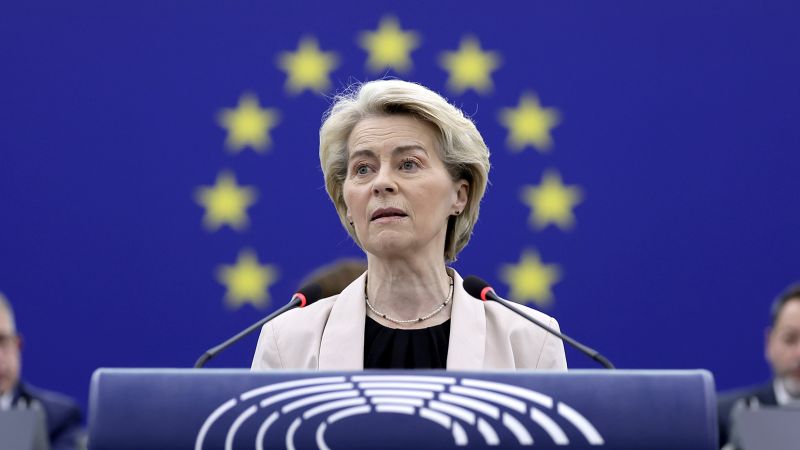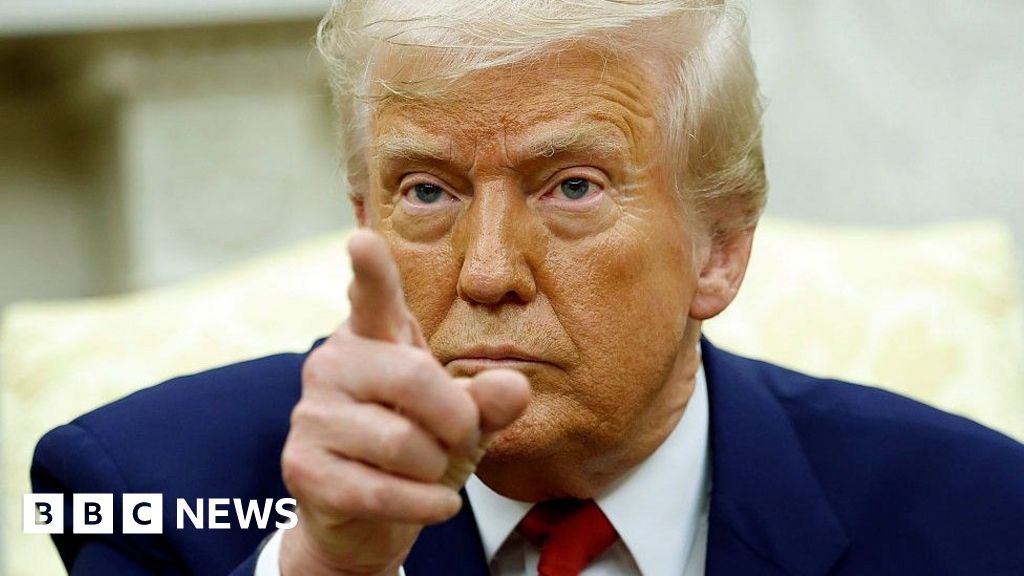China Retaliates Against Trump's Tariffs

The escalating trade war between the United States and China has intensified, with both nations imposing additional tariffs on each other's goods. This tit-for-tat escalation raises concerns about the potential impact on the global economy.
The Chinese Ministry of Foreign Affairs has strongly condemned the U.S.'s latest tariffs, with spokesperson Lin Jian stating that China will take "resolute and strong measures" to protect its interests. China accuses the U.S. of "arrogant and bullying behavior" and insists on safeguarding its sovereignty, security, and development interests. Jian asserts, "We’ll not let anyone take away the Chinese people’s legitimate right to development. We’ll not tolerate any attempt to harm China’s sovereignty, security, and development interests."
The conflict began when U.S. President Donald Trump imposed tariffs on Chinese imports, citing concerns over trade imbalances. China retaliated with its own tariffs, leading to a cycle of escalation. Trump has threatened to impose even higher tariffs if China does not withdraw its countermeasures.
In a social media post, Trump warned China that unless it scraps its tariffs by Tuesday, it would face a 50% tax. If this threat materializes, US companies could face a total rate of 104% on Chinese imports, considering the existing tariffs already in place. Trump also stated that "all talks with China concerning their requested meetings with us [on tariffs] will be terminated!"
China's commerce ministry has labeled the additional levy as "a mistake on top of a mistake" and rejects the "blackmail nature" of the U.S. demands. A Chinese embassy spokesman, Liu Pengyu, accused the U.S. of "unilateralism, protectionism, and economic bullying."
The situation has further intensified with China announcing retaliatory tariffs of 84% on imports of US goods. According to DAILY POST, this follows Trump's decision to nearly double duties on Chinese imports.
China’s State Council Tariff Commission issued a statement saying, “The US escalation of tariffs on China is a mistake upon mistake, severely infringing upon China’s legitimate rights and interests, and seriously damaging the multilateral trading system based on rules”.
In addition to the increased tariffs, China’s Commerce Ministry imposed export controls on 12 American companies and added six more US firms to its “unreliable entity list,” banning them from trading or making new investments in China. They also filed a complaint to the World Trade Organization over the latest US tariffs.
Despite the escalating tensions, China has indicated a willingness to negotiate, but insists on an attitude of equality, respect, and mutual benefit. A Chinese Foreign Ministry spokesperson stated that the US needed to “demonstrate an attitude of equality, respect and mutual benefit” if it truly wanted to resolve the trade war through dialogue.
Meanwhile, US Treasury Secretary Scott Bessent has downplayed China’s retaliatory moves, stating that it is unfortunate that China does not “want to come and negotiate” a tariff deal. He called China the “worst offenders in the international trading system” and claimed the escalation would be a “loser” for them.
China has released a white paper on its trade and economic ties with the US, saying that relations had been damaged by the “unilateral and protectionist measures” taken by Washington. A Commerce Ministry official emphasized that China does not want a trade war but would “never sit idly by” while the legitimate rights and interests of the Chinese people are harmed.
The trade war is expected to have a significant impact on China's export sector, which has been a crucial driver of its economic growth. Despite the challenges, China has expressed confidence in its ability to cope with the situation and has announced measures to boost domestic consumption.
Global markets continue to react negatively to the ongoing trade tensions, reflecting concerns about the potential disruption to international trade and economic growth. The situation remains fluid, and the long-term consequences of the trade war are yet to be seen.












